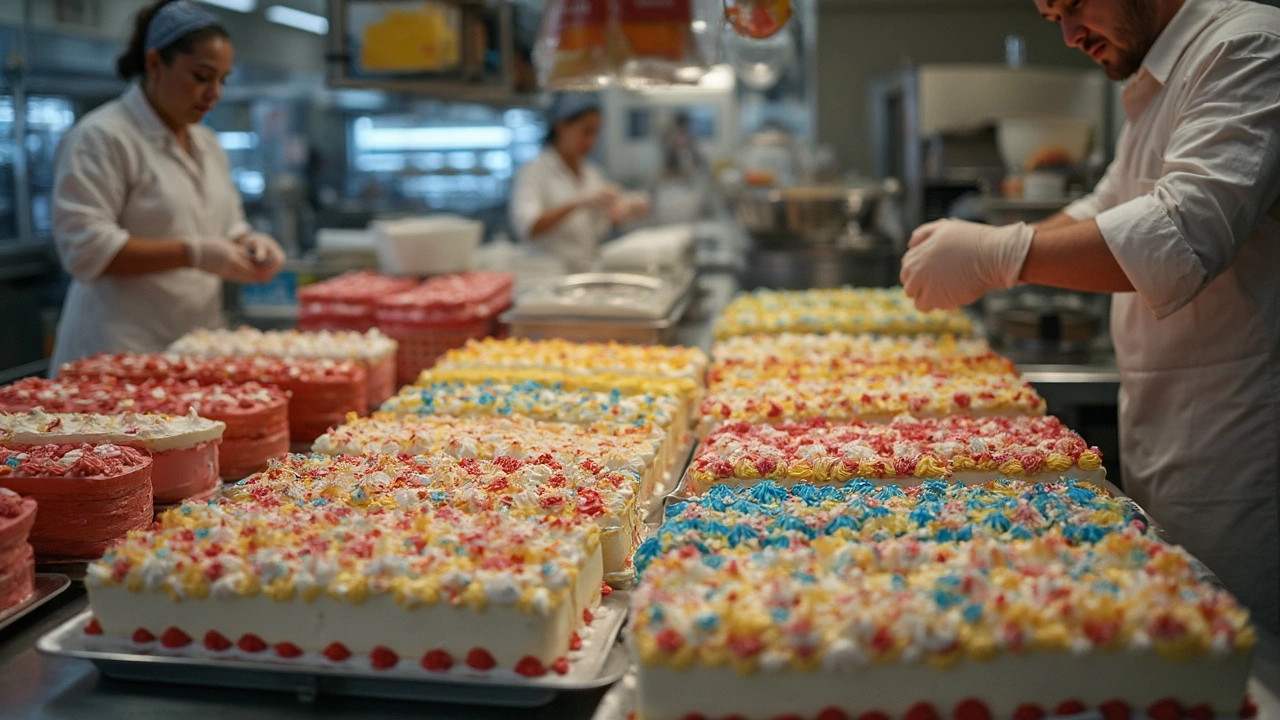Bakery Costs: What You Need to Know Before You Buy
Ever looked at a slice of cake and wondered why it costs more than a loaf of bread? The truth is, every sweet you see in a bakery carries hidden expenses. From premium butter to the time a baker spends perfecting a texture, each factor adds up. Knowing these drivers helps you decide if a price tag is fair or if you’re being overcharged.
What Drives Bakery Prices?
First, ingredients matter. High‑quality chocolate, real vanilla beans, or almond flour cost significantly more than standard pantry staples. When a bakery uses these, the price rises accordingly. Second, labor is a big chunk. A skilled baker spends hours on recipe development, testing, and decoration. That expertise isn’t cheap, and it shows up in the final cost.
Third, size and complexity play a role. A simple batch of brownies is cheaper than a multi‑tiered wedding cake with intricate piping. The more layers, decorations, and custom shapes, the higher the labor and material costs. Finally, overhead like rent, utilities, and equipment maintenance add a base cost that every bakery must cover, regardless of what you order.
How to Keep Your Sweet Budget in Check
If you love desserts but hate surprise bills, start by comparing similar items. A plain sponge cake from a local shop may cost less than a branded specialty cake with exotic fillings. Look for seasonal promotions—many bakeries discount fruit tarts or cupcakes when the fruit is in surplus.
Another tip: order in bulk. A dozen cupcakes often costs less per piece than a single one. If you’re planning an event, ask the baker for a price‑breakdown. They can suggest simpler frosting or fewer tiers to meet your budget without sacrificing taste.
Don’t overlook the cost of storage. Some pastries stay fresh for days, while others need to be eaten right away. Buying items that can be frozen, like certain cookie dough or cake layers, can save money if you plan ahead. Just make sure the bakery provides clear freezing instructions.
Finally, consider DIY hacks for minor elements. Buying a plain cake and adding your own frosting can cut costs dramatically. Many bakeries sell unfinished cake bases at a lower price, letting you personalize the finish at home.
Understanding bakery costs isn’t about being cheap; it’s about getting value for every pound you spend. When you know why a macaron costs £2 in Paris or why a wedding cake swells to £800, you can make smarter choices that satisfy both your sweet tooth and your wallet.
So next time you walk into a bakery, ask yourself: are the ingredients premium? Is the design complex? Can I negotiate a simpler version? With these questions in mind, you’ll walk out with a treat that’s worth every bite and every penny.

Why Are Grocery Store Cakes So Cheap? Birthday Cake Secrets Unwrapped
Ever wondered why birthday cakes from grocery stores don’t put a dent in your wallet? This article spills the secrets behind those low prices and how stores keep costs down. It breaks down how cakes are made, what ingredients they use, and the systems in place. Get smart tips on picking the right grocery store cake and when to skip it for something extra special. You'll walk away with real-world advice, not just cake gossip.
View More



